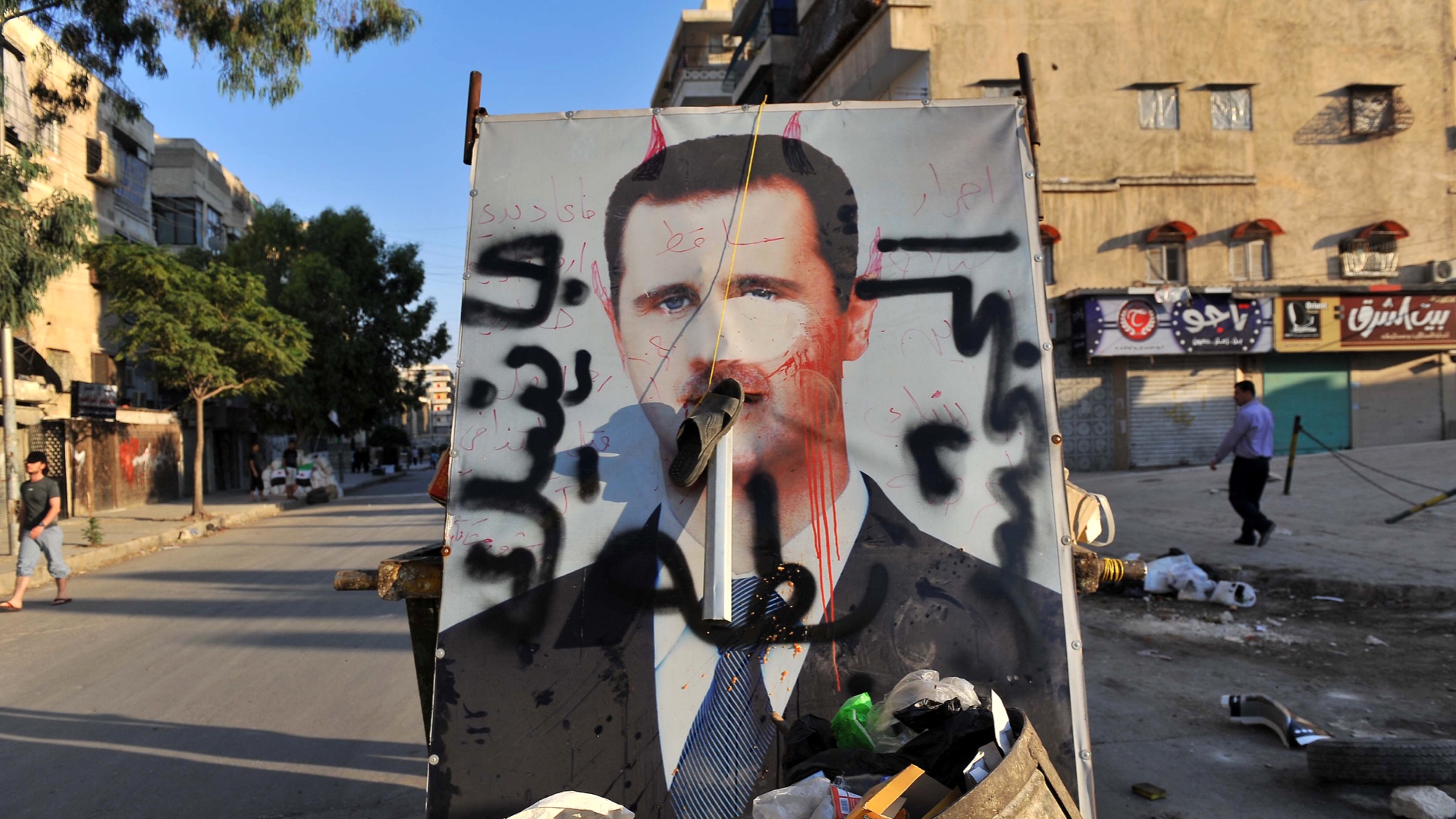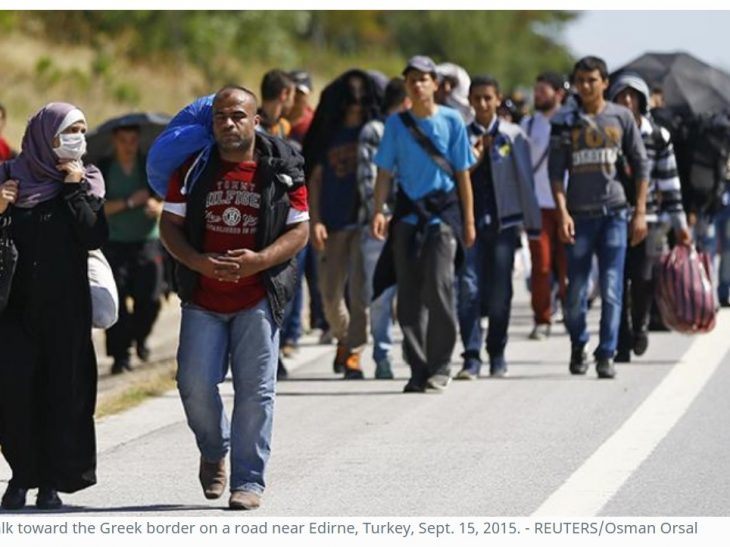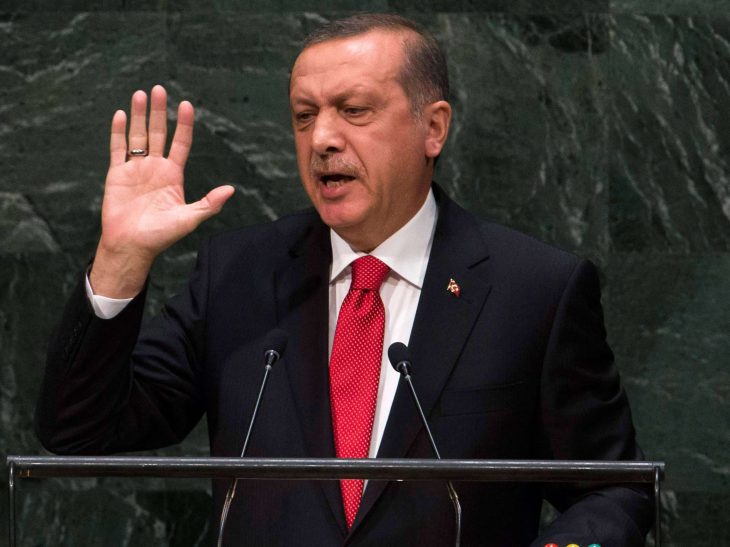Covid-19 in North Syria: A tragedy and a new burden for Turkey
 assad-mutilated
assad-mutilated
Global heatlh charities had warned about the disaster for months. If war-torn North Syria is attacked by the Covid-19 virus, it would be defenseless, because of the competing jurisdictions, fighting, poor health facilities and malnutrition. Inevitably, it is beginning. It would have been foolish to think that the Kurdish-majority districts to the East of Euphrates and the last bastion of anti-Assad rebels, Idlib would be spread the ravages of epidemic. PA Turkey finds evidence of rising cases in Kurdish territories, some occupied by Turkey, and references to first cases in Idlib. A human tragedy could be unfolding in the next few months, as Turkey will be burdened by increasing health expenditures and transfer of medial resources of the territories it controls in Syria. Doing nothing would guarantee the spread of the disease to Turkey’s vulnerable Southern and Mediterranean provinces, potentially triggering the dreaded “second wave”.
ICRC warns of dire humanitarian crisis in northeast Syria
PA Turkey finds firm evidence of the beginning of an outbreak in North-Eats Syria, as reported by AFP:
The International Committee of the Red Cross warned Thursday of a worsening crisis in northeast Syria, where water cuts, food shortages and depleted health services are proving as dangerous as coronavirus.
Home to sprawling displacement camps hosting tens of thousands of people, including families of Islamic State group members, the Kurdish-held northeast has been hard hit by nine years of war.
A COVID-19 outbreak, which the United Nations says has infected six people and killed one in the region, has only added to a litany of challenges in the area, the ICRC said.
"For millions of people in northeast Syria, consequences of fighting, shortages of water, food and medicine, a lack of electricity, the economic downturn with job losses and price hikes are as much of a worry as coronavirus," said Karim Mahmoud, ICRC office head in the city of Hasakeh.
Fabrizio Carboni, ICRC's regional director, said "there's a risk that profound crises will worsen, hidden in plain sight, while the world's attention is on" the COVID-19 pandemic.
Under pressure from Russia, the UN Security Council in January reduced the number of border crossings authorised to deliver humanitarian aid to northern Syria from four to two, both on the Turkish frontier.
The Yarubiya entry point on the Iraqi border, used mainly to deliver UN-funded medical aid to the northeast, was one of those scrapped, causing an aid shortage.
Only one out of 16 hospitals is fully functioning, while eight are partially operational and seven are out of commission, the ICRC said.
North West Syria: Cases or no cases?
With close to 15K military men and women in Afrin, al Bab and Idlib provinces, an outbreak in North West Syria could put in motion a new vector of infection for Turkey’s South. Yet, we may not find out whether there is an epidemic, before the number of deaths makes it too difficult to conceal. Here is why:
Fears are understandably high for regime-held areas, but concern is even greater in opposition-held north-west Syria. Dr Mahmood Hariri, the Director of the Health Information System Unit in north-west Syria, said that "in total 335 suspected cases have been tested conducted and all returned negative," although adds the caveat that the tests are only 75 percent accurate and it would be impossible to say with full confidence that there were no cases of coronavirus in north-west Syria.
Testing for patients is nearly impossible
Dr. Hariri highlights a much larger problem. "We have a single testing machine, which is in Idlib city, that can perform 100 tests per day. And this lab has just 5,000 tests. We've used 335. These are all the tests we have. For over 4 million people. We were promised two other testing machines by the WHO, but until now, nothing."
A new report by the Health Information System Unit in north-west Syria has called for immediate action to prevent a serious outbreak in opposition held Idlib and Aleppo, and avoid a devastating loss of life. Dr Munzer al-Khalil, the head of Idlib Health Directorate is in charge of overseeing the health sector in an area where "there is a significant weakness as a result of the regular attack campaign that has targeted medical centres over the past year."
As seen in other countries around the world, hospital beds and access to ventilators are key to ensuring a reduced mortality rate and a high recovery rate. According to the report, as of April 2020 in north-west Syria, out of the area's 568 health facilities 306 remain functional, with 2,189 ward beds, 240 ICU beds, 98 adult ventilators and 64 paediatric ventilators.
According to Global Health Cluster, to meet minimal needs there should be at least 10 inpatient hospital beds per 10,000 people, with 10 percent of those being ICU beds, meaning that in northwest Syria, there should be 4,170, which represents a shortfall of almost 50 percent.
In their recent report the Health Information System Unit in north-west Syria have laid out three scenarios that the northwest region could face, based on WHO Covid-19 Essential Supplies Forecasting Tool, and data from the Health Information System Unit on population and health facility capacity and utilization in north-west Syria.
The first two scenarios are concerned with the population of 4.17 million as a whole, while scenario three applies only to the 1.2 million internally displaced persons (IDPs) in camps and tented settlements.
The first scenario represents the more optimistic outlook with a "medium doubling rate" of every four days. According to the report, scenario one calculates 16,384 infections, representing 0.4 percent of the population. Of those infections 14 percent are expected to be severe and require admission to a hospital.
With this sort of admission rate and the capacity available, the health service would be overwhelmed eight weeks after the first recorded infection. Within the scenario, five percent of cases, 819 infections, are anticipated to be critical and require ICU beds. From the first recorded infection, the health system will be overwhelmed with severe cases by the beginning of week seven. With scenario one, the total number of expected Covid-19 deaths is 978.
Turkey must build a heatlh infrastructure in North Syria
It is incumbent upon Ankara to immediately transfer medical resources freed from lower caseloads in Turkey to North Syria, or to border cities, erect field hospitals and introduce preemptive antibody testing to fend off the health crisis. Inaction could lead to thousands of cases and hundreds of thousands illegally crossing to Turkey to save their lives. Many of these will be “asymptomatic cases”, who will spread the virus unknowingly to large clusters.
The need is Turkey’s, not Assad’s.
Atilla Yesilada
You can follow our English language YouTube videos @ REAL TURKEY: https://www.youtube.com/channel/UCKpFJB4GFiNkhmpVZQ_d9Rg
And content at Twitter: @AtillaEng
Facebook: Real Turkey Channel: https://www.facebook.com/realturkeychannel/




